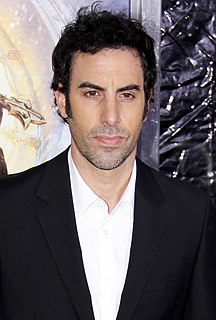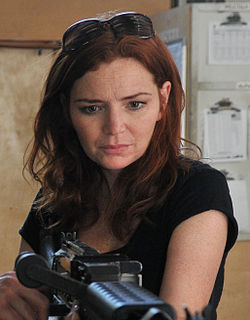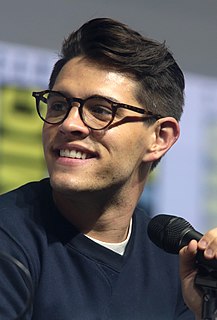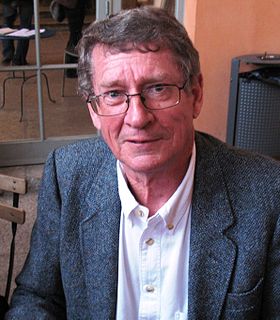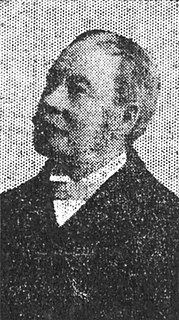A Quote by Sacha Baron Cohen
I think I think in the moment. So when I'm in character, I'm in character, and I'm obviously thinking about what's going on around me, but it's easier to do stuff when you're in character.
Related Quotes
The first thing that happens is the cleansing of the former character. I don't think a lot of actors talk about it, but there is usually a process where you essentially purge yourself of the character played prior to the movie. Then you want to think about what the character represents, and you write down all of the elements about this character and then take the time to find some synchronicity and start breathing the character.
As an actor you bring some of your own experiences which can make things easier. You build off of it, but your imagination is always the best thing you have as far as creating things I think specifically for what that character is going through. But you're definitely drawing obviously upon things that you can connect to, and then you kind of mold the change that you're making into something that's right for the character.
I was kind of scared at first to do that [vice-over] because when you're on set, a lot of the things going on around you - the environment and playing off other actors - and that's what makes it easier and helps you to be in your character. So, realizing you're not going to have that and you're going to be secluded in this booth, it's like, "How am I going to be a character when I'm just in these walls?"
Reputation is seeming; character is being. Reputation is manufactured; character is grown. Reputation is your photograph; There is a vast difference between character and reputation. Reputation is what men think we are; character is what God knows us to be. Reputation is seeming; character is being. Reputation is the breath of men; character is the inbreathing of the eternal God. One may for a time have a good reputation and a bad character, or the reverse ; but not for long.
